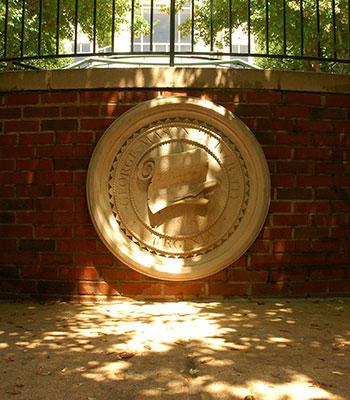
All candidates are required to have evaluations from a set of external referees who are recognized experts in the candidate’s field or fields and can speak to the quality and impact of the candidate’s collective work.
The primary focus of the external evaluation is on their research, scholarship, and creative work, although it is occasionally appropriate to comment on external professional service contributions and their teaching/mentoring approaches and achievements.
The Faculty Handbook requires that each Local Academic Unit (LAU) develop specific guidelines with respect to the selection and use of external referees. As transparent leadership is a value at George Mason University, these guidelines should be made available to all faculty. Please note that LAUs may choose to expand on the institutional requirements and guidance outlined here.
University Guidelines For Soliciting External Referees
(Download the complete PDF)
- University guidelines require a minimum of five external review letters, although School/College minimums may be higher.
- Units may allow candidates to suggest external referees. In the final dossier within Interfolio, no more than 40% of the external referees for the candidate shall come from the candidate’s list. In no case should the candidate see the final list of referees.
- External referees should be subject matter experts who are selected on the basis of their ability to comment on the candidate’s professional accomplishments. For faculty who are engaged in Interdisciplinary/Multidisciplinary (I/M) work, the choice of external referees should be made so that the I/M scholar’s achievements are fairly represented and evaluated. Note that strong subject matter experts may not always be tenured faculty members, although their professional standing to evaluate the candidate must be demonstrated.
- The five required external referees are expected to provide an independent judgment of the candidate and should not have a vested interest in the success or failure of the candidate. Mentors, advisors, collaborators, co-authors, and family members are ineligible.
- Beyond the required five external referees, it might be valuable to request additional external evaluations from collaborators, particularly for candidates engaged in Interdisciplinary/Multidisciplinary (I/M) work. In these instances, collaborators should be asked to document the extent and nature of the candidate’s individual contributions to the collaborative work, rather than to evaluate the quality and importance of a shared work. The relationship to the candidate and their work must be clearly articulated.
- LAUs should determine an a priori defined list of individuals who would best serve as external referees and send formal requests to their top choices. If someone declines or ignores the request, then that should be noted and another on the list should be approached. The goal is to make every effort to ensure that the group of external referees, as a whole, can evaluate the totality of the candidate’s professional accomplishments.
- External referees should be provided with the following information:
- A current curriculum vitae
- A copy of the candidate’s statement of research, scholarly, creative work
- Copies of and/or access to selected recent publications
- (If appropriate) Teaching materials
- The criteria for evaluating promotion and/or tenure for the College/School and the program/department, as applicable
- Candidates who may have used university-approved extensions for any reason should be held to the same standard one expects for a typical probationary period; that is, additional time should not prejudice the review in any way.
